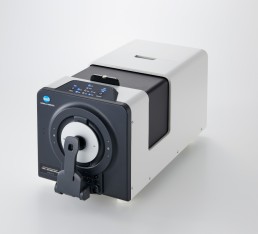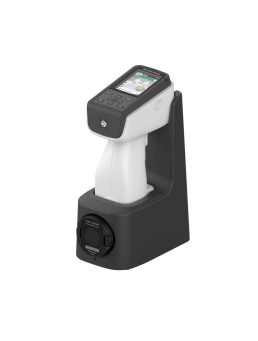Keeping it Fabulous: Spectrophotometry Shines In Cosmetic Quality Assurance
Precise color measurements is key to achieving consistency in cosmetic production. Often, basic visual analysis is the first step to confirm that a color shade is in the same ballpark as the hue in production. Unfortunately, not only is visual inspection a very limited method for ensuring color quality, the different shine and textures of some powdered cosmetics can make discerning the exact hue difficult.
To solve this problem use a color measurement instrument to create a quantifiable numeric value. Sphere-based spectrophotometric technology, found in instruments like the CM-17d Spectrophotometer, are the best way to ensure colors are within the acceptable tolerance. With spectrophotometers manufacturers can quantify color using the CIE L*a*b color space. Color tolerance can also be easily established by using the ΔE*ab color difference formula, or the more modern CIE 2000 (delta E00), some high-end manufactures may have their own standards for all their suppliers and subsidiaries to comply.
Applied at multiple points throughout the stages of development and manufacturing to make sure the color remains consistent through each step Spectrophotometry is a versatile quality control method.
Overall, spectrophotometry is preferred in the cosmetic industry because it confirms the data obtained with visual inspection and quantifies it numerically, which reduces potential color errors early in the process. This saves cosmetic manufacturers valuable time and money while securing them a consistent, high-quality product with a high resale value at the outset.
Of course, the color measurements depend on the instrument used. Konica Minolta, as a technological leader in state-of-the-art color measurement instruments, has spectrophotometers such as the CM-5, its latest launch, the CM-17d, and the CM-3700A Plus , designed to provide accurate color measurement data used for different applications within the cosmetics industry.
In addition to measuring instruments, Konica Minolta offers a line of software in Quality Control and Color Formulation. The combination of these software with color instruments provides the different sectors of the cosmetic industry with greater precision and data traceability to control color throughout the production process.










